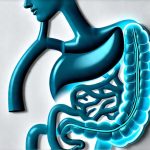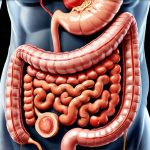The human gut microbiota, a complex ecosystem of trillions of microorganisms residing in our digestive tract, plays a crucial role in overall health and well-being. This intricate community influences digestion, immunity, mental health, and even chronic disease risk. As we age, significant changes occur within this microbial landscape, impacting its composition and function. Understanding these alterations is vital for promoting healthy aging and potentially mitigating age-related decline.
These shifts aren’t simply a passive consequence of growing older; they are interwoven with lifestyle factors like diet, medication use, stress levels, and physical activity. The interplay between these elements creates a dynamic environment where the gut microbiota evolves over time, often leading to decreased diversity and altered metabolic capabilities. This article will explore the specific effects of aging on gut microbiota, examining the observed changes and their potential implications for health.
Aging & Microbiota Composition
Aging is consistently linked to alterations in the composition of the gut microbiota. Studies demonstrate a decline in microbial diversity with age, meaning fewer different species are present. This loss of diversity is often associated with reduced resilience and stability within the gut ecosystem, making it more vulnerable to disruptions. Furthermore, there’s typically an increase in potentially harmful bacteria and a decrease in beneficial ones as individuals get older.
These changes aren’t universal; individual variation remains significant, influenced by genetics, environmental factors, and lifestyle choices. However, overall trends point toward a less diverse and potentially imbalanced gut microbiota with advancing age.
Functional Consequences of Microbial Shifts
The changing composition directly impacts the functions performed by the gut microbiota. As diversity decreases, so too does the range of metabolic activities carried out within the gut. This can affect nutrient absorption, short-chain fatty acid (SCFA) production, and immune regulation – all essential for maintaining health. Reduced SCFA production, for instance, has implications for energy metabolism and gut barrier integrity.
Altered Immune Function
The gut microbiota plays a central role in educating and modulating the immune system. As the microbial composition changes with age, so too does this interaction. A decline in beneficial bacteria can weaken immune responses and increase susceptibility to infections. Simultaneously, an increase in inflammatory species may contribute to chronic low-grade inflammation – a hallmark of aging known as “inflammaging.”
This altered immune landscape isn’t solely driven by the microbiota; it also reflects age-related changes in the immune system itself (immunosenescence). The gut microbiota and the aging immune system create a feedback loop, where each influences the other. Maintaining a healthy gut can potentially help mitigate some aspects of immunosenescence.
Impact on Gut Barrier Integrity
The intestinal barrier acts as a selective gatekeeper, preventing harmful substances from entering the bloodstream while allowing essential nutrients to pass through. A diverse and balanced microbiota strengthens this barrier, contributing to its integrity. Aging-related changes in microbial composition can compromise gut barrier function, leading to increased permeability (often referred to as “leaky gut”).
This heightened permeability allows bacterial products and toxins to enter the systemic circulation, triggering inflammation and potentially exacerbating age-related diseases. The production of SCFAs by beneficial bacteria also supports barrier integrity, so a decline in SCFA-producing species further contributes to this issue.
Modulation Through Dietary Interventions
Dietary interventions represent a promising avenue for modulating the gut microbiota in aging individuals. Increased fiber intake from diverse sources promotes the growth of beneficial bacteria and enhances SCFA production. Probiotic supplementation – introducing live microorganisms into the gut – may help restore microbial balance, although efficacy varies considerably depending on the strain and individual characteristics.
Prebiotics – non-digestible fibers that feed beneficial bacteria – can also be incorporated into the diet to support a healthier gut ecosystem. It’s important to note that dietary changes should be approached holistically, considering individual needs and potential sensitivities. Personalized nutrition strategies are likely to yield more effective results than one-size-fits-all approaches.
Ultimately, understanding the dynamic interplay between aging and the gut microbiota is crucial for developing interventions aimed at promoting healthy aging and longevity. While research continues to unravel the complexities of this relationship, focusing on lifestyle factors like diet, exercise, and stress management remains a cornerstone of maintaining a thriving gut ecosystem throughout life.


















